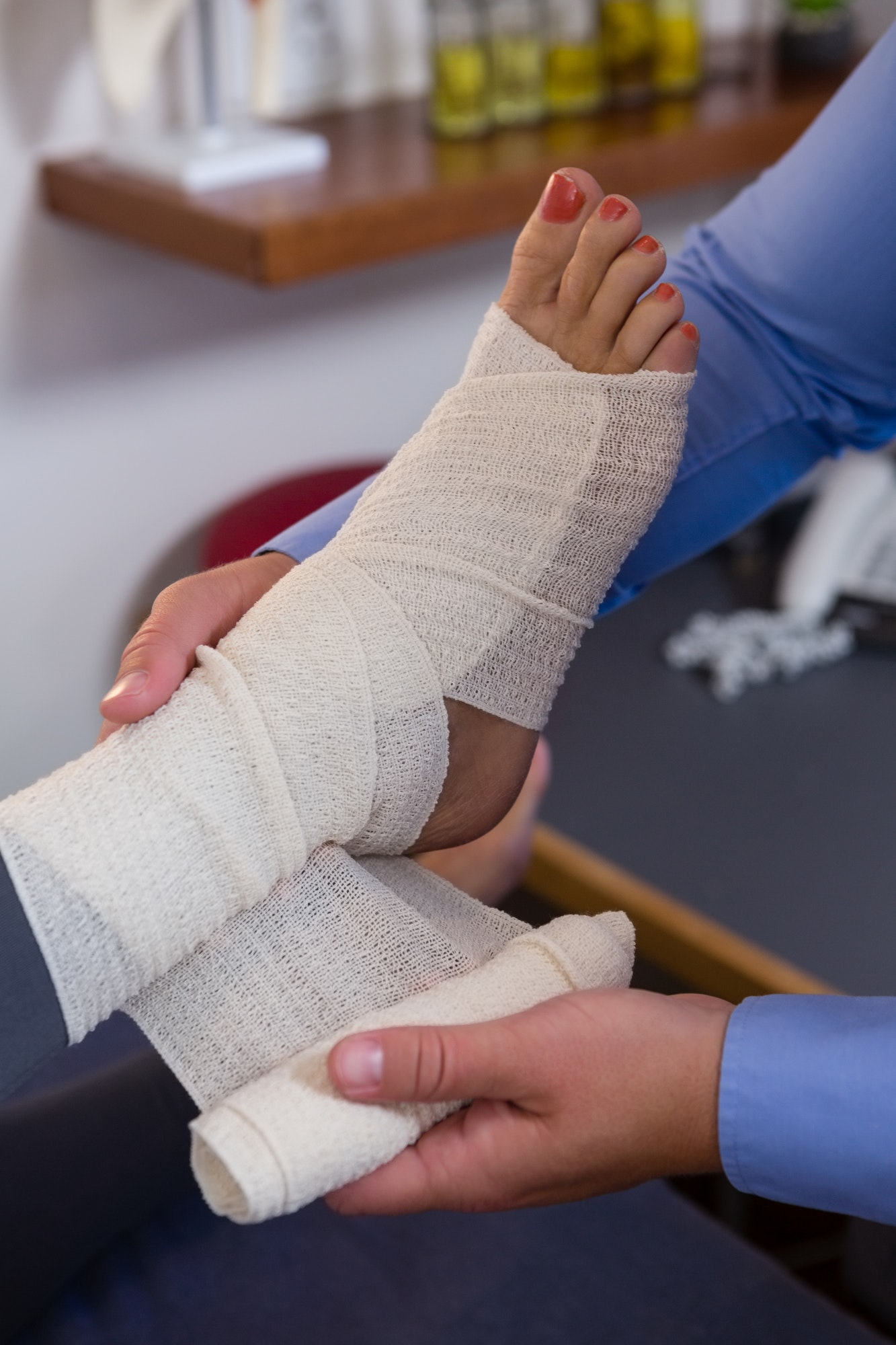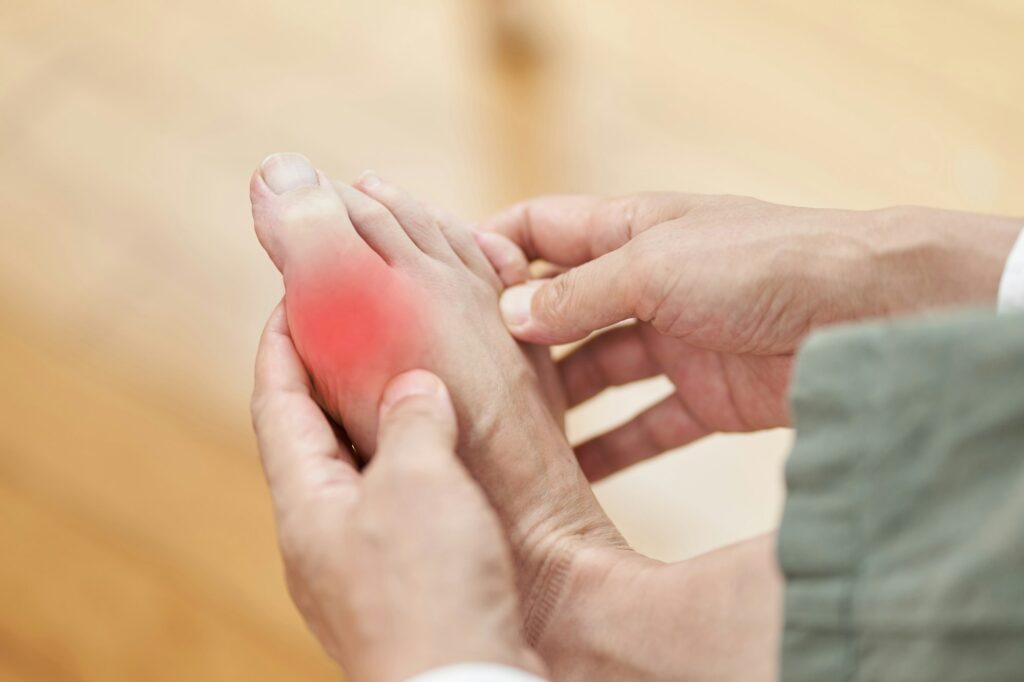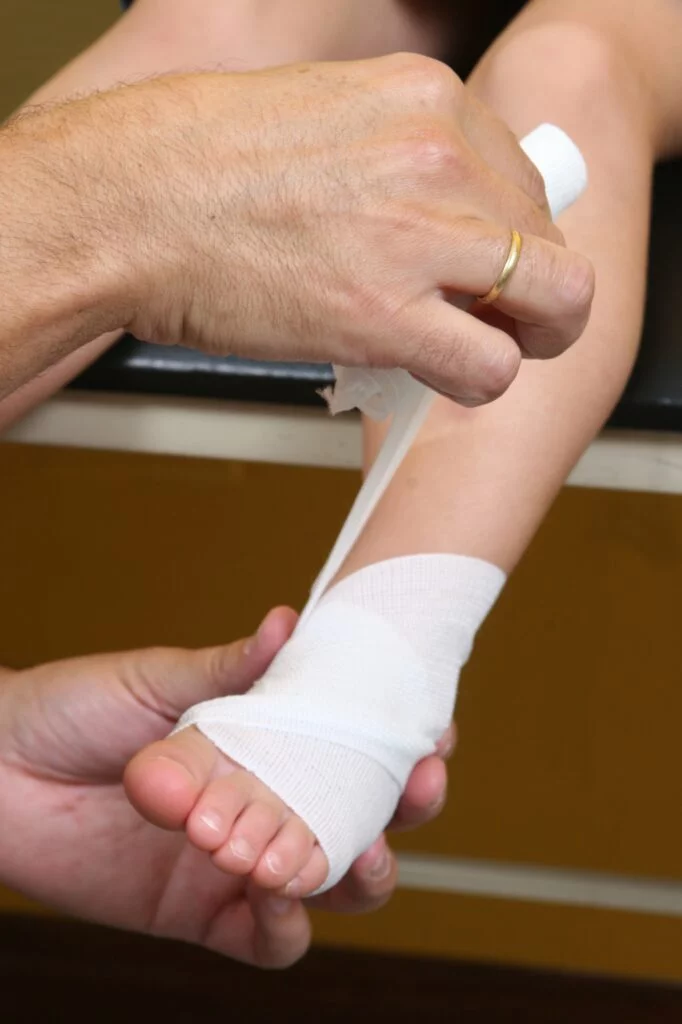Table of Contents
Gout Treatment in the Salt Lake City area of Utah
Gout FAQs
What is gout?
Gout is a type of arthritis that commonly affects the big toe. It’s characterized by redness, swelling, and stiffness that occurs suddenly with no warning.
Anyone can experience gout, but certain factors may increase your risk. For example, gout is especially common in men who are overweight.
What are the symptoms of gout?
Symptoms of gout include:
- Intense joint pain
- Swelling
- Redness
- Joints that are warm to the touch
As the condition gets worse, you might also have difficulty bending or straightening your affected joint.
When should I see a podiatrist about gout?
What are the risk factors for gout?
Risk factors for gout include:
- Being male
- Being overweight
- Eating a diet that contains lots of meat or alcohol
- Having relatives with gout
- Being between the ages of 30-50
You’re also more likely to experience gout if you’ve undergone surgery recently or experienced a type of foot-related trauma, like a fracture or a stubbed toe.
How is gout diagnosed?
To diagnose gout, your Advanced Foot & Ankle Center provider reviews your medical history, asks about your symptoms, and examines your feet and toes. They also order several tests, including blood work and a joint fluid test.
If your provider suspects your symptoms are the result of another condition besides gout, they might also order X-rays or an ultrasound.
How is gout treated?
There’s no cure for gout, but it’s possible to manage uncomfortable symptoms and reduce the frequency of flare-ups. Advanced Foot & Ankle Center typically recommends a combination of healthy lifestyle changes and prescription medication.
For example, limiting your consumption of alcoholic beverages and sugary drinks can prevent gout attacks. Exercising regularly and maintaining a healthy weight relieves pressure on your joints and improves your range of motion.
Some of the most common drugs used to treat gout include:
- Nonsteroidal anti-inflammatory drugs (NSAIDs)
Colchicine - Corticosteroids
- Medicines that block uric acid production
Your provider can make recommendations that align with your symptoms and needs.
What Should You Do Next?
Looking to schedule an appointment with a physician?
Call Advanced Foot and Ankle Center or book an appointment online today for effective solutions to your painful gout.



